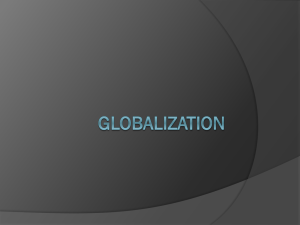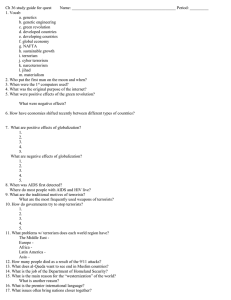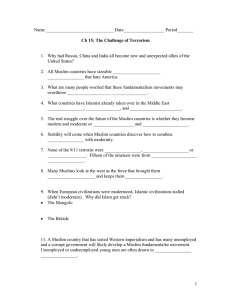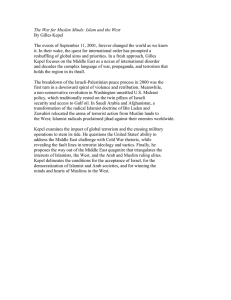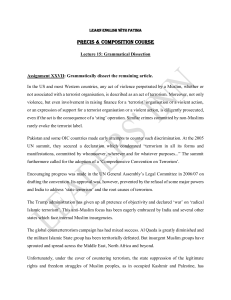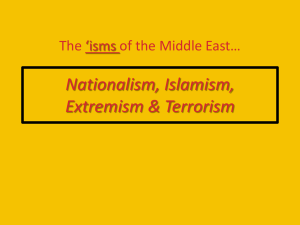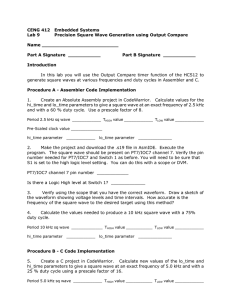AP World History
advertisement
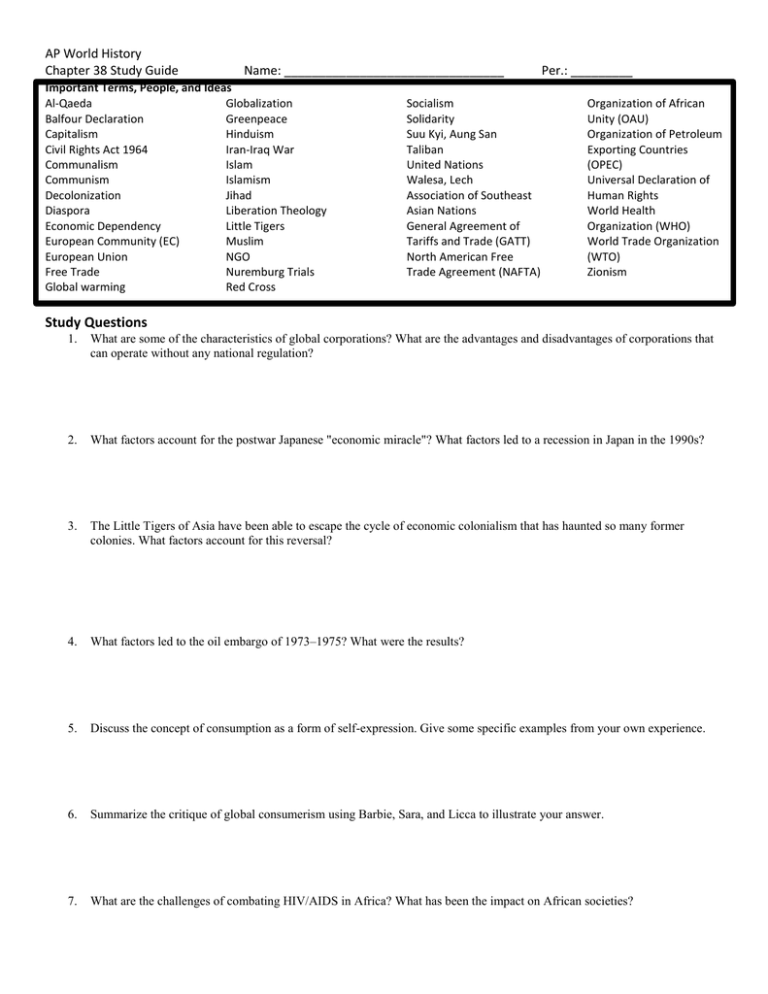
AP World History Chapter 38 Study Guide Name: ________________________________ Important Terms, People, and Ideas Al-Qaeda Balfour Declaration Capitalism Civil Rights Act 1964 Communalism Communism Decolonization Diaspora Economic Dependency European Community (EC) European Union Free Trade Global warming Globalization Greenpeace Hinduism Iran-Iraq War Islam Islamism Jihad Liberation Theology Little Tigers Muslim NGO Nuremburg Trials Red Cross Socialism Solidarity Suu Kyi, Aung San Taliban United Nations Walesa, Lech Association of Southeast Asian Nations General Agreement of Tariffs and Trade (GATT) North American Free Trade Agreement (NAFTA) Per.: _________ Organization of African Unity (OAU) Organization of Petroleum Exporting Countries (OPEC) Universal Declaration of Human Rights World Health Organization (WHO) World Trade Organization (WTO) Zionism Study Questions 1. What are some of the characteristics of global corporations? What are the advantages and disadvantages of corporations that can operate without any national regulation? 2. What factors account for the postwar Japanese "economic miracle"? What factors led to a recession in Japan in the 1990s? 3. The Little Tigers of Asia have been able to escape the cycle of economic colonialism that has haunted so many former colonies. What factors account for this reversal? 4. What factors led to the oil embargo of 1973–1975? What were the results? 5. Discuss the concept of consumption as a form of self-expression. Give some specific examples from your own experience. 6. Summarize the critique of global consumerism using Barbie, Sara, and Licca to illustrate your answer. 7. What are the challenges of combating HIV/AIDS in Africa? What has been the impact on African societies? AP World History Chapter 38 Study Guide Name: ________________________________ Per.: _________ 8. What events led to the invasion of Afghanistan by the United States and the Northern Alliance in 2001? 9. What are some of the significant nongovernmental organizations (NGOs) operating in the world since WWII? What causes do these groups address? 10. What have been the principal causes of mass migration since World War II? What are some of the challenges presented by these migrations to host countries? Inquiry Questions 11. Why has it been so difficult to define terrorism? In what ways might modern terrorism be considered an aspect of globalization? 12. What have been the significant successes and disappointments of the United Nations since its founding in 1945? Why has the UN been more effective in addressing issues of health and human rights than in maintaining international peace and security? 13. Compare the goals of western feminists with the goals of women in Asia and Muslim countries. To what extent does culture shape the goals of feminist leaders?
